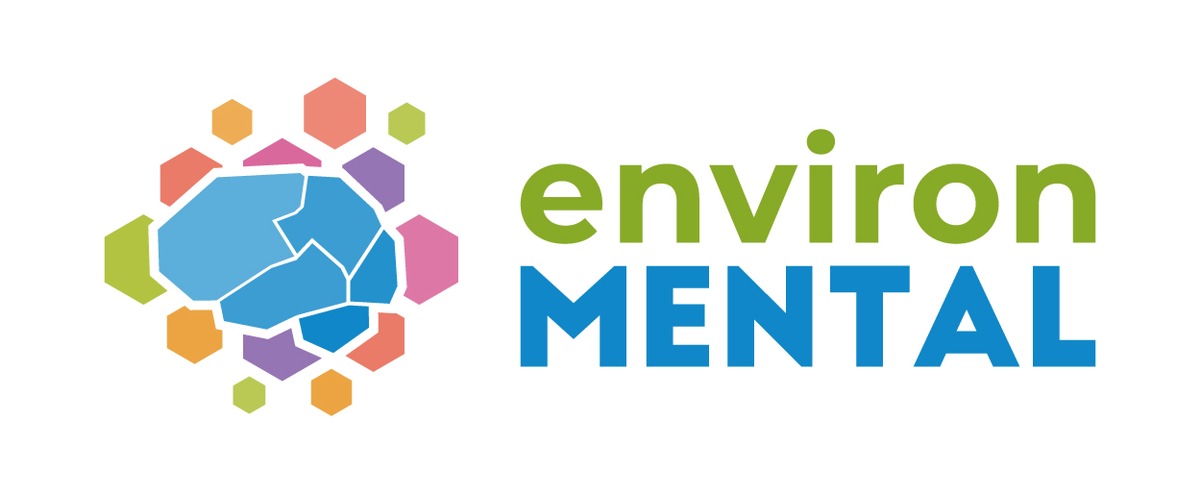Consensus Conference
Are you interested in the link between the
environment and mental health?

The environMENTAL Project Consensus Conference!
This event took place from June – December 2023 with 8 online sessions to deliberate on the project agenda and activities with citizens.
(4 sessions to be held in June/July, with another 4 in September – each of 2 hours duration)
plus a weekend in Berlin (1-3 December 2023)
The environMENTAL project hosted a consensus conference to give citizens and interested audiences a chance to interact with the project, learn what it does, question the researchers and shape the course of the research.
environMENTAL is a 5 year €10 million research investment by the European Union that aims to better understand the impact of environmental factors on mental health. (See project for more details)
For more details, please see the following points:
What is a consensus conference?
A consensus conference is a way of getting people involved in public discussions about important issues. It is a type of participatory technology assessment that focuses on giving regular people a say in the decision-making process. The goal is to make sure that different opinions and experiences are heard, not just the researchers. This helps to make policies and regulations more fair and inclusive. Consensus conferences have been used in many areas of research, but they started in the medical field in the 1970s. They have been used to make decisions about things like Alzheimer’s Disease, biotechnology, and mental health interventions. Consensus conferences are important because they help to ensure that decisions are made with input from a variety of people, which makes them more legitimate and effective.
Who can participate?
Anybody can participate. We are looking for a diverse mix of individuals who have an interest in the topic area and who are willing and able to dedicate time to the project.
The language of the event will be English. You need to be comfortable contributing to a group in English.
Why should I volunteer? What is in it for me?
You will benefit in the following ways from participating in the consensus conference:
- Ability to engage in depth with a cutting-edge large EU-funded research project and co-shape its work.
- Become part of a community of people interested in the environmental effects on mental health and how these can be researched.
- The possibility to spend a weekend in Berlin participating in a consensus conference in autumn 2023. Travel costs and accommodation will be covered.
- Continued follow-up engagement and receipt of updates on research findings (for those interested).
- Possible contribution to a jointly authored publication on the insights arising from the process.
- You will receive a certificate of engagement.
What will I be expected to do?
..You need to:
- attend the majority of the preparatory sessions (these will be at 1600 -1800CEST on the following dates: June 20, 27, July 04 & July 11; and on September 5, 12, 19, and 26)
- be willing to contribute actively to the discussion and to the writing of the report.
Which data will be collected from me?
When you register your interest in the consensus conference, we will ask you for consent for the collection of data.
In the first instance, we need data about you that will allow us to contact you (name, email) and some demographic data (e.g. age, profession, gender, nationality) to select a diverse group of participants.
If you are selected and participate in the Consensus Conference, we will collect data about the discussions and feedback that you provide. This will include your feedback on various activities, contributions to debate and the final report.
Audio-visual data (photographs, videos) will be collected as part of the face-to-face event in Berlin. Online sessions will be recorded for research purposes.
These data will be used for the progress of the Consensus Conference as well as for research and publications related to the Consensus Conference.
What will happen with my data?
All data collected in the context of the Consensus Conference will be stored securely on appropriate systems (mostly MS Office 365) run by the University of Nottingham. These systems are in compliance with EU data protection principles.
Identifiable data will be used for necessary administrative purposes, e.g. to arrange your stay in Berlin and keep you updated.
All research-related data will be pseudonymised, which means that names and other personal identifiers will be removed. This will ensure that there is no easy way of linking individuals with data. No identifiable data will be used in any research output or publications without prior approval. Should quotes from participants be used that could lead to them being identified in any publications, then participants will be asked for specific consent.
Access to the data will controlled by the University of Nottingham team (Dr. George Ogoh, Prof. Bernd Stahl). Where required, some data can be shared with members of the environMENTAL project consortium, for example when organising meetings and other activities.
We collect personal data under the terms of the University of Nottingham’s Royal Charter and in our capacity as a teaching and research body to advance education and learning. We thus process your data on the legal basis that our research is in the public interest, we have legitimate interests and / or that you consent to data processing in freely and voluntarily participating in our research activities.
How long will my data be stored for?
Data protection law allows us to retain personal data for an indefinite period and use it in future for public interest, scientific or historical research purposes or statistical purposes, subject to the implementation of technical and organisational measures that safeguard your data, your legal rights and your freedoms. These safeguards include the storage measures described above to protect your data against unauthorised access, and de-identification (anonymisation or pseudonymisation) of your data wherever possible and practicable. Data that identifies or could identify you will not be made public without your consent.
What are the risks for me?
Participation in the Consensus Conference carries no additional risk to participants beyond discussing the themes of mental health of the conference.
What are my rights?
Your data protection rights are:
- To be informed about the collection and use of personal data (as per this document).
- To access and receive a copy of your personal data, and other supplementary information, on request.
- To object to and restrict data processing if you think we are not complying with data protection law, and to rectify inaccuracies.
- To be forgotten, i.e., to have your personal data erased.
- To data portability and to obtain your data in an accessible and machine-readable format if appropriate, or to transfer your data to another organisation if technically feasible.
- To complain to about the way we process your personal data to our ethics committee (cs-ethicsadmin@cs.nott.ac.uk), our Data Protection Officer (dpo@nottingham.ac.uk) or the Information Commissioner’s Office (https://ico.org.uk/make-a-complaint).
Your ethical rights are:
- Right to withdraw: You have the right to withdraw from the research at any time without explanation. You also have the right to request that your data be deleted if you do withdraw.
- Handling of ‘mixed’ data: If the data is ‘mixed’ data – i.e., if it involves other people (not including the researchers), e.g., a conversation or video of multi-party interaction – it cannot be deleted unless all parties request it. However, any mixed data involving you will be redacted wherever possible, with the exception of scientific works produced prior to your notification of withdrawal.
- Withdrawal procedure: If you wish to withdraw, please notify Prof. B. Stahl: bernd.stahl@nottingham.ac.uk
If you do not receive confirmation of withdrawal from the research, please email cs-ethicsadmin@cs.nott.ac.uk
Joint authorship:
You may, if you wish, be acknowledged and / or publicly identified as joint author of the publications arising from the Consensus Conference. Affirming your right to be acknowledged as joint author may affect your anonymity.
How will participants be selected?
However, We will shortlist possible candidates using the following criteria:
- Interest in the subject matter of the project
- Diversity in terms of
- Age
- Education level
- Nationality / ethnicity / cultural background
- Gender
- Availability for the pre-meetings and the physical CC in Berlin
- We encourage people from all works of life to participate. However, preference will be given to individuals with lived experience of mental health issues

